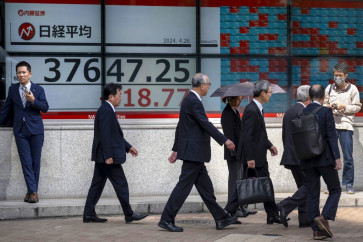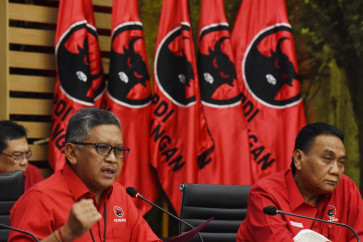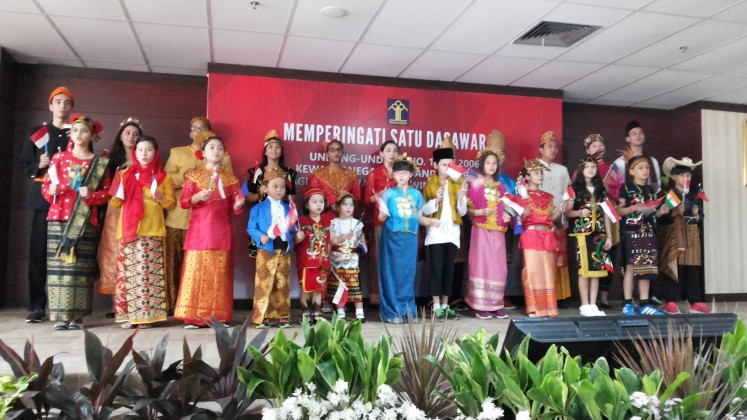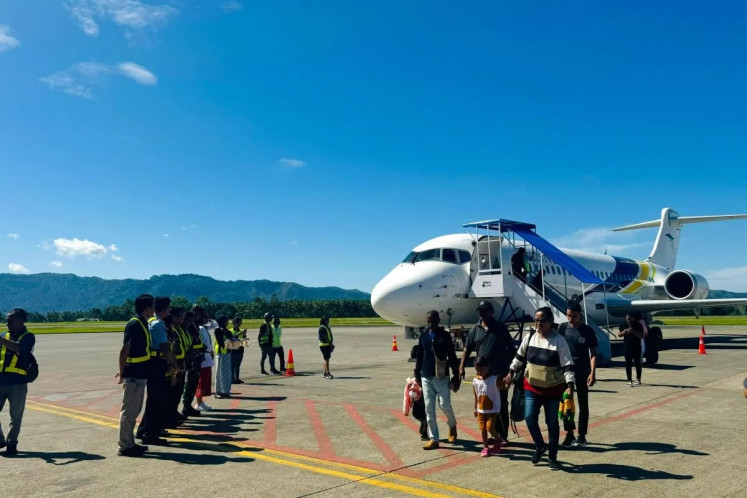NGO confident investigation will lead to syndicates
The Indonesian Women’s Association for Legal Aid and Justice in Bali is optimistic its investigation into a women trafficking case is providing crucial insight into how human trafficking syndicates function
Change Size

T
he Indonesian Women’s Association for Legal Aid and Justice in Bali is optimistic its investigation into a women trafficking case is providing crucial insight into how human trafficking syndicates function.
Ni Nengah Budawati, the association’s director, told The Jakarta Post on Saturday that the investigation was focusing on a case that saw five women illegally employed in Malaysia. All have since returned to Indonesia. He said it was hoped the case would unveil how women trafficking syndicates operated in Indonesia.
“We assume that many more cases have gone unreported,” Budawati said.
Last Friday, the Bali Police finished its report into the case.
The five women, all between 23 and 25, are Ni Luh Sayu Hari Sudewa, Ni Komang Purnama Sari, Ni Luh Putu Ayu Risma Dewi and Ni Luh Putu era Yudi Asri.
The five women, all graduates of the Mengwitani Pyramid Cruise Ship and Hotel Training Center in Badung, were allegedly trafficked by a worker agency, which had an arrangement with the training center.
When the women embarked to Malaysia last April, the agency told them they would be hired by a five-star hotel there.
However, they were instead employed as laborers at an electronics factory, where they were forced to sleep in a warehouse and were not paid for the first two months.
The Indonesian Embassy in Kuala Lumpur followed up a report by the Manpower and Transmigration Ministry and had the women returned to Bali.
Budawati said a police report on the case showed the women had been victims of human trafficking, and that legal action would be taken for the first time in a case of human trafficking involving Balinese women. Recruitment procedures and work placement in the case violated the 2004 Law on the Protection and Placement of Workers in Overseas Countries, he said. The women’s rights association, she said, would act as a legal councilor.
“Generally, Balinese people and the local authorities are not aware of [human trafficking]. We have to spread awareness about this and take prompt action against the violators,” Budawati said. Many adults and parents, she added, rejected out of hand the idea that Balinese women or children could ever become victims of human trafficking networks. Luh Gede Yastini, director of the Bali Chapter of the Indonesian Legal Aid Foundation, said lawsuits against human traffickers were often hampered by a lack of evidence.
In 2002, Yastini said, the foundation had dealt with a human trafficking case involving several other women from Gianyar, including one named Ida Ayu Wedawati.
The girls were sent to Japan to work as “dancers at some restaurants in Japan. But, the girls were forced to work as hostesses at several night clubs in the country”, she said.
Of the women involved, Wedawati alone reported the case to the foundation.
Bali issued a bylaw in 2009 on the prevention and treatment of victims of human trafficking. However, neither the bylaw or 2004 Law on Human Trafficking could provide a legal basis to prosecute the alleged perpetrators in the case.









